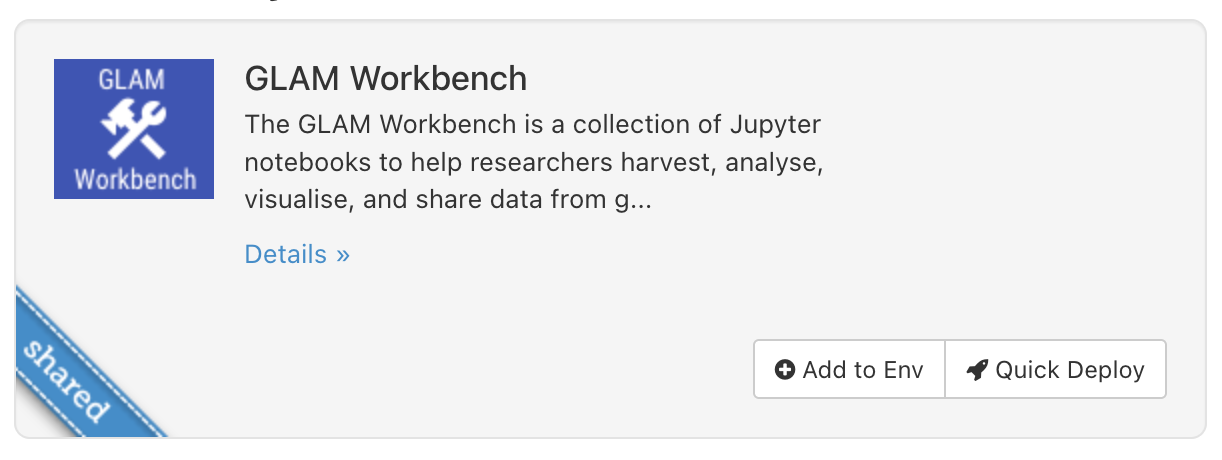GLAM Workbench now in the Nectar Research Cloud!
The GLAM Workbench isn’t dependent on one big piece of technological infrastructure. It’s basically a collection of Jupyter notebooks, and those notebooks can be used within a variety of different environments. This helps make the GLAM Workbench more sustainable – new components can be swapped in and out as required. It also makes it possible to create different pathways for users, depending on their digital skills, institutional support, and research needs. For example, links to Binder make it easy for users to explore the possibilities of the GLAM Workbench and accomplish quick tasks. But Binder has limits. Where do you go when your research project scales up?
Earlier this year I added one-click installation of GLAM Workbench repositories in Reclaim Cloud. Today I’m very pleased to announce that selected GLAM Workbench repositories can be installed as applications within the Nectar Research Cloud. Using nationally-funded digital infrastructure, researchers in Australian universities can now create their own workbenches in minutes. So whether you’re harvesting truckloads of data from Trove or analysing web archives at scale, you can move beyond Binder and set up an environment dedicated to your research project. Cool huh?

Currently four repositories can be installed on Nectar in this way:
- Trove newspapers
- Trove newspaper and gazette harvester
- Recordsearch (National Archives of Australia)
- Web archives
But more will be added in the future as I update repositories to generate the necessary Docker images. Nectar installation information is now included in each of these four repositories, and I’ve added a Using the Nectar Cloud section to the help documentation that includes a detailed walkthrough of the installation process. If you strike any problems either raise an issue on GitHub, or ask a question at OzGLAM Chat.
Huge thanks to Andy, Jacob, and Jo at the Australian Research Data Commons (ARDC) who responded enthusiastically to my tweeted query, and packaged the repositories up into an easy-to-install, reusable application. After all the work I’ve put into the GLAM Workbench, it’s really exciting to see it embedded within Australia’s digital research infrastructure. #dhhacks